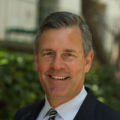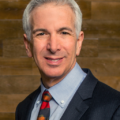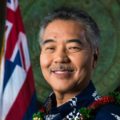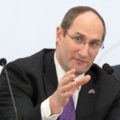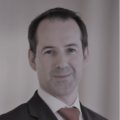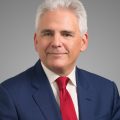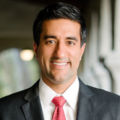NACW 2022 Conference Program
This is a draft program subject to change.
Times are listed in Pacific Daylight Time (UTC-7).

Host: CaliforniaCarbon.info
Room: Gloriana AB
2021 was perhaps the definitive ‘take-off’ year for the voluntary offsets market. Depending on project type, prices at least doubled, exchange contracts saw their first major volumes, and a futures market emerged. In many senses it was a major evolution, and yet some questions remain. Retirement demand has been increasing linearly, offset issuance exponentially. CaliforniaCarbon.info’s detailed analysis of actual supply and genuine demand trends will reveal whether 2021’s price surge was built on sand, or solid stone.
Presentation slides

Host: Climate Action Reserve
Room: Annabella Ballroom D
Fee: $150
California’s Cap-and-Trade Program is the centerpiece of the state’s landmark Global Warming Solutions Act (AB 32) and has served as a model for national and subnational governments around the world since its launch in 2012. This three-hour workshop will cover the basics of California’s Cap-and-Trade Program. Speakers will discuss how the program fits into AB 32 and SB 32, what developments are in the works under AB 398, timeframes established under the program, compliance entities and their obligations, basic market structure and changes that will go into effect after 2020. The workshop is an excellent primer for people starting to learn about the program and a comprehensive refresher course for people wanting to brush up on their Cap-and-Trade Program knowledge.

Host: Climate Action Reserve
Room: Anabella Ballroom C
In the past year, the carbon market in Mexico showed immense growth and expansion, both in the voluntary and transitioning compliance markets. In 2021-2022, there have been more than 115 projects listed or registered with the Climate Action Reserve in Mexico, and 2022 marks the transition year for the compliance ETS administered by SEMARNAT. This panel will highlight first the voluntary carbon market and its impact and benefit to the local communities, followed by an update on the compliance program and role public policy has on offsets markets.
- Part 1: The Carbon Market and Its Impact on Local Communities in Mexico
- Part 2: The Role of Public Policy on the Carbon Market in Mexico

Host: IETA
Room: Gloriana C
Please note this event is only for IETA members or by invitation.

Host: Ecosystem Marketplace
Room: Sonia
From private reporting to public registries, radical transparency and data intelligence are core elements to a functioning and sophisticated marketplace. Data needs are growing from a widening base of participants, join this session to hear from leaders about how they are using data they trust to drive their understanding of credibility, quality, and decisions in carbon markets.

Host: Element Markets/Bluesource
Room: Gloriana AB
The drivers and market for reductions and removals has solidified over the last year as the guidance for net zero claims has developed. This workshop will introduce participants to the differences between avoided emissions and removals and how they are used in distinct ways to fulfill carbon neutrality and net zero reduction goals. We will discuss which removals qualify for the new Science-Based Targets Initiative Net Zero Guidance and the future removals demand due to corporate pledges and supply from offset project developers. The workshop will give participants timely updates on the status of removals breakouts in revised offset methodologies and how these removals will appear on public registries. A particular focus will be given to the North American Improved Forest Management project pipeline and how these projects fit into the new removals definitions.
The first portion of the session will be a presentation on the current state of the market and registries, followed by small group discussions to better understand what factors each participant views as critical to continued development of the market. The session will cover forestry, grasslands, and regenerative agriculture projects, as well as some emerging project types like direct air capture and blue carbon, and will present analysis and market updates affecting each of these project types. Attendees will hear from industry, carbon standards, and offset developers and will come away with a clear picture of the nature-based markets, with a focus on North America, as well as the most current updates likely to affect the near-term development of the market.

Host: Latham & Watkins
Room: Anabella Ballroom C
Climate considerations will play a crucial role as companies navigate the energy transition. This legal workshop will cover emerging issues within the energy transition, highlighting key policy and regulatory developments; the Infrastructure Investment and Jobs Act; carbon capture, utilization, and storage; voluntary carbon markets, credits and offsets; renewable fuels and California’s Low Carbon Fuel Standard; ESG; climate disclosures; climate change litigation trends, and the intersection of CEQA and climate change.

Host: Climate Action Reserve
Room: Caramia

Host: Climate Action Reserve
Room: Annabella Ballroom D
Fee: $150
The Climate Action Reserve invites you to attend a workshop that will provide an introduction to the basics of California’s Compliance Offset Program, including an overview of the various Compliance Offset Protocols and verification of compliance offset projects. This workshop will also focus on updates to and expectations for California’s Compliance Offset Program. It will delve into requirements under AB 398, including offset usage limits and direct environmental benefits (DEBs). This workshop will be useful for consultants, compliance offset buyers, project developers, policymakers, and anyone interested in learning more about California’s compliance offset program.

Host: CaliforniaCarbon.info
Room: Gloriana AB
The previously steady WCI carbon market was changed, almost beyond recognition, over the last 18 months. Prices almost doubled, we have started to see relatively large daily price changes that would maybe have occurred on an annual basis before. Why? In one word: investors.
We know financial positions currently, and how they’ve impacted the market, but how will they impact future volatility, how will they connect CCAs more deeply with a raft of other global assets and dynamics, how long will investors dominate this market and what returns are they after, and under what conditions might they leave?
The answers to these questions will define the WCI market for the next five years. Hear the thoughts of the market’s most dedicated and deepest analyst team: CaliforniaCarbon.info
Presentation slides
Room: Anabella Ballroom AB
- European carbon (EU ETS & UK ETS)
Led by Mike Szabo, Carbon Pulse - Women in climate
Led by Lauren Wilson, Climate Action Reserve - Scaling carbon farming through technology
Led by Dr. Guy Pinjuv, Indigo - Climate fintech – what is the trend?
Led by Bety Zavariz, Climate Action Reserve - Enhanced climate disclosures by private companies
Led by Marc Campopiano, Latham & Watkins
Room: Carousel Ballroom
8:00 am – 8:10 am Welcome – Craig Ebert
8:10 am – 8:15 am Keynote remarks – Patricia Espinosa
8:15 am – 8:30 am Keynote remarks – Fred Krupp


Room: Carousel Ballroom


Room: Carousel Ballroom
As companies and individuals strive to meet their climate goals, carbon credits are becoming a popular tool to address their carbon footprint. As this voluntary carbon market grows, a number of initiatives are working to identify global standards to ensure these carbon credits benefit our environment and truly contribute to ambitious climate goals, as well as ensure projects provide positive economic and social benefits. Panelists in this session will discuss the status and work of these initiatives, their desired outcomes, the impact they could have on the global market and how carbon credit buyers can be empowered to identify high-quality credits and lead the market toward pursuing the highest standards.
Speaker slides:




Room: Anabella Ballroom AB
Sponsored by: Sierra View Solutions

PATH 1: CARBON MARKETS AND CLIMATE POLICY
Room: Carousel Ballroom
While the North American Carbon Market has been in play for years, it is now experiencing tremendous growth on both the voluntary and compliance sides. In part one of a two-part session, analysts and market players will discuss key near term developments for the North American voluntary market, including pricing, new players and projected growth.





PATH 3: LOCAL EMPOWERMENT AND LAND USE
Room: Anabella Ballroom D
Natural climate solutions can deliver up to a third of the emissions reductions needed to get to 2 degrees celsius. However, nature-based solutions present unique challenges, including land-tenure issues, permanence, and project financing. This session will explore both the big opportunity and unique challenges natural climate solutions present.




PATH 4: LOW-CARBON TRANSPORTATION AND FUELS
Room: Gloriana
In this session, experts will discuss the current state of LCFS programs in North America, including the California Low Carbon Fuel Standard, Canada Clean Fuel Standard, Oregon Clean Fuels Program and Washington Clean Fuel Standard. What paths have the existing programs paved and what developments can markets expect to see in the near term?


Room: Anabella Ballroom AB
Sponsored by: C-Quest Capital

PATH 1: CARBON MARKETS AND CLIMATE POLICY
Room: Carousel Ballroom
Compliance carbon markets in North America have served as models for others around the world and they continue to develop and grow. In the second part of a two-part series, analysts and market players will discuss key near term developments for North American compliance markets WCI, RGGI and the Mexico ETS.



PATH 2: INNOVATION, FINANCE AND TECHNOLOGY: DRIVING SCALE AND INTEGRITY
Room: Anabella Ballroom C
On the global stage, California has long been a leader on climate action. Now the state’s next milestone in its Scoping Plan is to reduce GHG emissions by 40 percent below 1990 levels by 2030. An often discussed tool in the state’s toolbox has been its Cap-and-Trade Program, but the state relies on many other tools to help achieve its climate goals. In this session, leaders from different state agencies discuss how their climate programs and initiatives support the state’s climate goals, how those programs have been shaped by EJ concerns and the impact they have had on disadvantaged communities so far.





PATH 3: LOCAL EMPOWERMENT AND LAND USE
Room: Anabella Ballroom D
Reforestation presents a valuable opportunity for sequestering carbon, providing local social and economic benefits and achieving sustainability goals. But, it’s a valuable climate solution that requires early investment to get off the ground. This session will look at the potential for reforestation and what is needed to implement it in the most effective way.





PATH 4: LOW-CARBON TRANSPORTATION AND FUELS
Room: Gloriana
Since international bunker fuels are not included in national GHG inventory reports, the aviation industry is subject to a separate set of rules as defined by the Carbon Offsetting and Reduction Scheme for International Aviation (CORSIA). This session will examine current commitments and efforts to decarbonize international aviation, including renewable fuel developments, electric aircraft, and other potential mitigation options.




Room: Anabella Ballroom AB
Sponsored by: Sierra View Solutions

PATH 1: CARBON MARKETS AND CLIMATE POLICY
Room: Carousel Ballroom
When the Biden Administration entered the White House, so did a hope for a renewed push on strong federal climate policy. But with the president’s Build Back Better program continually stalled or barely inching forward and a divided Congress, what are realistic expectations for any climate policy passing? In this session, panelists will discuss those realistic expectations and the key players.




PATH 2: INNOVATION, FINANCE AND TECHNOLOGY: DRIVING SCALE AND INTEGRITY
Room: Anabella Ballroom C
The technological trend toward digitization of assets and systems is entering the climate economy, where effective measurement, reporting, and verification (MRV) of emissions and emissions reductions is critical. Learn how digital assets could bring efficiency and scale to essential climate activities and resources, such as making verification faster, cheaper, and more trusted, and capturing the economic value of verified impact data through tokenization.





PATH 3: LOCAL EMPOWERMENT AND LAND USE
Room: Anabella Ballroom D
Blue carbon, including mangroves, wetlands, and seagrass, can provide large emissions reductions and offer an array of environmental and social benefits, including coastal protection, fisheries habitat, and water filtration. Yet, blue carbon offsets projects are limited. This session will discuss the opportunities and challenges blue carbon projects face, including new technology and innovations that can drive new projects.



PATH 4: LOW-CARBON TRANSPORTATION AND FUELS
Room: Gloriana
Advancing developments with low-carbon transportation and fuels holds tremendous opportunities with reducing emissions, achieving climate goals and improving air quality. This session will provide an overview of key trends and the current state of this important sector.



Room: Carousel Ballroom
Companies have shown high, sustained interest in tropical forest carbon emissions reductions and removals credits to protect and restore forests and to deliver on climate goals. But there has been a fierce debate about whether these types of credits are really delivering the environmental and related benefits that are being claimed. Companies face a complex and dynamic marketplace that makes it hard to know what “good” looks like when it comes to tropical forest carbon credits. In this session, NGO representatives and Indigenous Peoples will discuss why it’s important to clearly identify the high-integrity tropical forest credits that drive the most impact for climate, biodiversity and people, so that companies can invest with confidence.



Room: Anabella Ballroom AB
Sponsored by: ANAB
Room: Anabella Ballroom AB
- ESG marketing – why it is more important than ever
Led by Nancy Fuchs Marshall, ClimeCo - Scaling carbon markets through standardization
Led by Hugh McAlpine, Xpansiv - Community participation in carbon projects / Participación comunitaria en los proyectos de carbono (Discussion in Spanish / Discusión en Españo)
Led by CO2munitario - Sharing new developments on soil organic carbon
Led by Bety Zavariz, Climate Action Reserve - The intersection of forest health and carbon projects
Led by Jon Remucal, Climate Action Reserve
Room: Carousel Ballroom
What was accomplished at COP26 in Glasgow and what needs to happen at COP27 in Sharm El-Sheikh? Current NDCs are insufficient to prevent dangerous rates of climate change, so what needs to happen to slow and eventually reverse current climate trends? Panelists in this plenary session will discuss these questions and expectations for COP27.



Room: Anabella Ballroom AB
Sponsored by: The Climate Trust

PATH 1: CARBON MARKETS AND CLIMATE POLICY
Room: Carousel Ballroom
Article 6 of the Paris Agreement is critical for international cooperation at both the country and corporate level. Where does the world stand on the Article 6 rulebook? What are the most critical next steps to ensure effective investments in climate mitigation? Could corresponding adjustments and related issues hasten or retard effective investment?




PATH 2: INNOVATION, FINANCE AND TECHNOLOGY: DRIVING SCALE AND INTEGRITY
Room: Anabella Ballroom C
As global interest in carbon markets has exploded, the financial industry has increased its focus on potential investment opportunities. How have capital flows changed into carbon markets changed in recent years? What is the significance of these developments? What are the implications of these developments for mitigation?





PATH 3: LOCAL EMPOWERMENT AND LAND USE
Room: Anabella Ballroom D
Offsets projects have historically provided new economic opportunities and income streams for rural communities. Whereas in urban areas, offsets projects have not provided the same economic benefits and opportunities to date. This panel will explore the environmental justice perspectives and local impacts of offsets in rural and urban areas, and ways offsets can better support both rural and urban development.




PATH 4: LOW-CARBON TRANSPORTATION AND FUELS
Room: Gloriana
The development of an infrastructure to support widespread EV adoption in the US lags far behind development of EV vehicles, so much so that instead of paving the way for EV it is a major roadblock. What is the current status of developing that much-needed infrastructure, who are the key players needed to support it and what future infrastructure needs must be met to support this sector?



Room: Anabella AB
Sponsored by: Ruby Canyon Environmental

PATH 1: CARBON MARKETS AND CLIMATE POLICY
Room: Carousel Ballroom
Hear from market experts to gain insight on Canada’s swiftly-evolving carbon pricing and markets landscape through 2030. The country has an updated NDC and is scheduled to release its Emissions Reduction Plan shortly before NACW. This session will look at the new and evolving carbon landscape that will support these climate goals. Speakers will discuss status and outlook for the Federal Output-Based Pricing System changes, provincial carbon pricing and “equivalency” scenarios post-2022, federal offset system and protocol developments, Clean Fuels Standard and voluntary carbon market and protocol highlights.





PATH 2: INNOVATION, FINANCE AND TECHNOLOGY: DRIVING SCALE AND INTEGRITY
Room: Anabella Ballroom C
The IPCC has stated we cannot reach climate goals without CCUS. This session will examine the current state of technological developments, the status of existing pilot projects, the role that CCUS can play moving forward, and the costs associated with these technologies.




PATH 3: LOCAL EMPOWERMENT AND LAND USE
Room: Anabella Ballroom D
Criticisms are often leveled at offsets that they often do not represent permanent reductions or high quality investments. This session will examine options for addressing these concerns, including potential insurance instruments, the use of conservation easements, and other innovative market developments.




PATH 4: LOW-CARBON TRANSPORTATION AND FUELS
Room: Gloriana
It’s no longer just Volts and Priuses cruising down the streets. Advances in electric vehicles have brought more consumer models, including trucks, and heavy duty vehicles to the road. Experts in this session will talk about those advancements, what the expansion of EVs means for the impact of transportation on the climate and what we can expect to see down the road.



Room: Anabella Ballroom AB
Sponsored by: The Climate Trust

PATH 1: CARBON MARKETS AND CLIMATE POLICY
Room: Carousel Ballroom
Compliance markets are in development throughout Latin America as countries and subnational jurisdictions work to meet their climate objectives and take advantage of the opportunities carbon markets present. At the same time, the voluntary market has identified the region as having potential for supply. This session will discuss the opportunities, expectations, and challenges Latin America faces as compliance and voluntary action takes off.


PATH 3: LOCAL EMPOWERMENT AND LAND USE
Room: Anabella Ballroom D
High quality offset credits that support Sustainable Development Goals (SDGs) not only fetch higher prices but, more importantly, provide additional benefits to local communities. Inclusion of and demand for SDGs is also the trend being seen in carbon markets. Just as low quality credits provide little environmental value, weak or non-existent co-benefits also provide little value. This session will explore how to continue driving the inclusion of SDGs and how to monitor quality.






